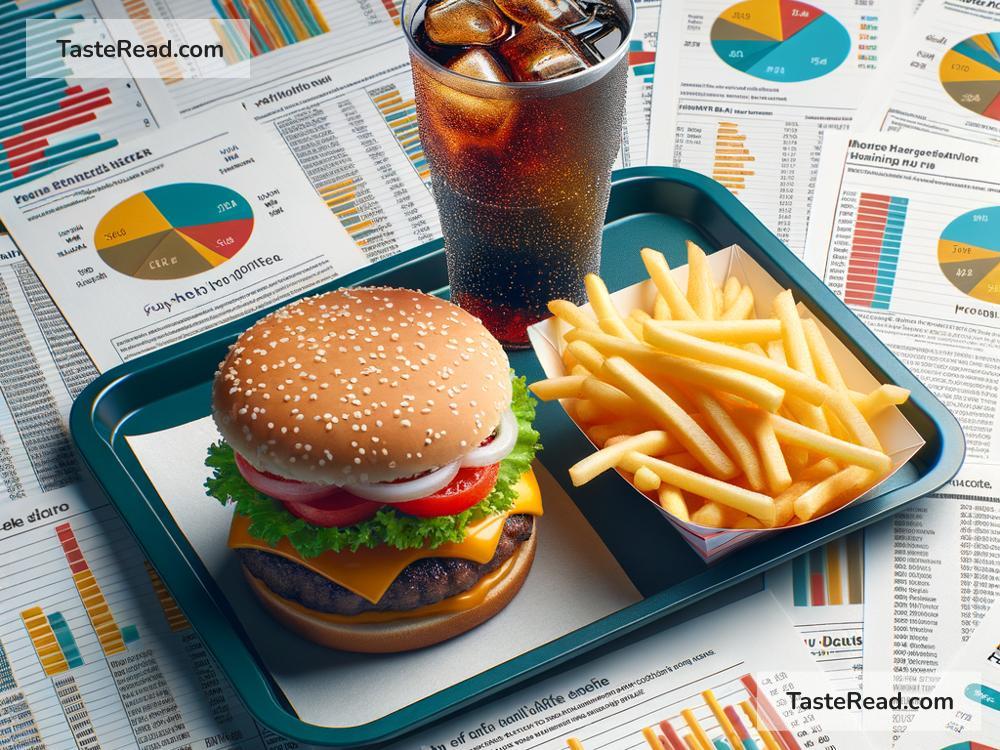The Impact of Fast Food on Health: A Simple Guide
Fast food is everywhere. From burgers and fries to pizzas and sodas, millions of us enjoy these quick-to-get meals. They’re tasty, convenient, and often cheap, which makes them hard to resist. But while fast food might save you time and money, eating it too often can have serious effects on your health. Let’s take a closer look at how fast food can impact our bodies and why moderation is key.
What Makes Fast Food Unhealthy?
Fast food is usually high in calories but low in essential nutrients. Many fast food items are loaded with unhealthy fats, added sugars, and salt, which can harm your body over time.
-
High Calories: Fast food tends to be calorie-dense. This means you consume a lot of calories in a small amount of food. For example, a large cheeseburger, fries, and soda combo could have over 1,500 calories—more than half the daily recommended intake for many adults.
-
Unhealthy Fats: Many fast food items contain trans fats and saturated fats, which raise bad cholesterol levels in the blood. This increases the risk of heart disease and stroke.
-
Excessive Sugar: Sodas, milkshakes, and sauces in fast food are often packed with added sugars. Consuming too much sugar can lead to weight gain, diabetes, and other health problems.
-
Too Much Sodium: Salt makes fast food taste good, but too much sodium can cause high blood pressure and strain your heart.
How Does Fast Food Affect Your Health?
Eating fast food occasionally is unlikely to cause harm. But, when it becomes a regular part of your diet, it can affect your health in many negative ways.
1. Weight Gain and Obesity
Fast food is one of the biggest contributors to obesity. Because it’s high in calories and low in nutrients, it doesn’t fill you up in the same way healthier foods do. As a result, many people overeat and gain weight. Obesity is linked to an increased risk of type 2 diabetes, heart disease, and joint pain.
2. Heart Problems
The high levels of unhealthy fats and salt in fast food can lead to heart problems over time. Eating too much fast food can raise your cholesterol levels and blood pressure, two major factors that increase the risk of heart disease.
3. Digestive Issues
Fast food lacks fiber, which is essential for healthy digestion. Without fiber, you may experience constipation and other digestive problems.
4. Diabetes
Fast food can lead to unstable blood sugar levels. Consuming sugary drinks and foods regularly puts you at risk for type 2 diabetes, making it harder for your body to process sugar effectively.
5. Low Energy and Mood Swings
Fast food doesn’t provide the nutrients your body needs to function properly. Poor nutrition can leave you feeling tired, sluggish, and irritable. Over time, nutrient deficiencies may even impact mental health and cause mood swings or depression.
6. Poor Skin Health
If you notice more acne after a week of eating fast food, you’re not alone. Foods high in grease and sugar can lead to skin issues like acne and dullness.
Why Do We Keep Eating Fast Food?
Even though we know fast food isn’t the healthiest choice, many of us continue to eat it. Why? There are several reasons:
-
Convenience: Fast food is easy to get. Whether you’re in a rush or don’t feel like cooking, fast food is always an option.
-
Price: Fast food is generally cheaper than healthier meals, which makes it an attractive option if you’re on a tight budget.
-
Taste: Let’s be honest—fast food tastes good! It’s designed to be tempting and flavorful, which makes it hard to resist.
-
Advertising: Fast food companies spend billions of dollars on ads that make their meals look irresistible.
How Can You Make Better Choices?
The good news is that you don’t have to swear off fast food completely. Moderation and smarter choices can help you enjoy fast food without harming your health.
-
Limit How Often You Eat Fast Food: Try to limit your consumption to once or twice a month instead of every week.
-
Choose Healthier Options: Many fast food chains now offer salads, grilled chicken, and smaller portion sizes. Opt for these choices whenever possible.
-
Skip the Soda: Choose water, unsweetened tea, or a small juice instead of large sugary drinks.
-
Watch Portion Sizes: Avoid upsizing your meal. The larger the portion, the more calories, fat, and sugar you’ll consume.
-
Cook at Home: Preparing meals at home allows you to control ingredients and portion sizes. Home-cooked meals are usually healthier and more satisfying.
Conclusion
Fast food can be a tempting option when you’re hungry and in a hurry, but it’s important to understand the long-term effects on your health. Eating too much fast food can lead to weight gain, heart problems, and other issues that could harm your well-being. By making better choices and eating fast food in moderation, you can enjoy its convenience without sacrificing your health. Remember, your body deserves the best, so treat it with care!


